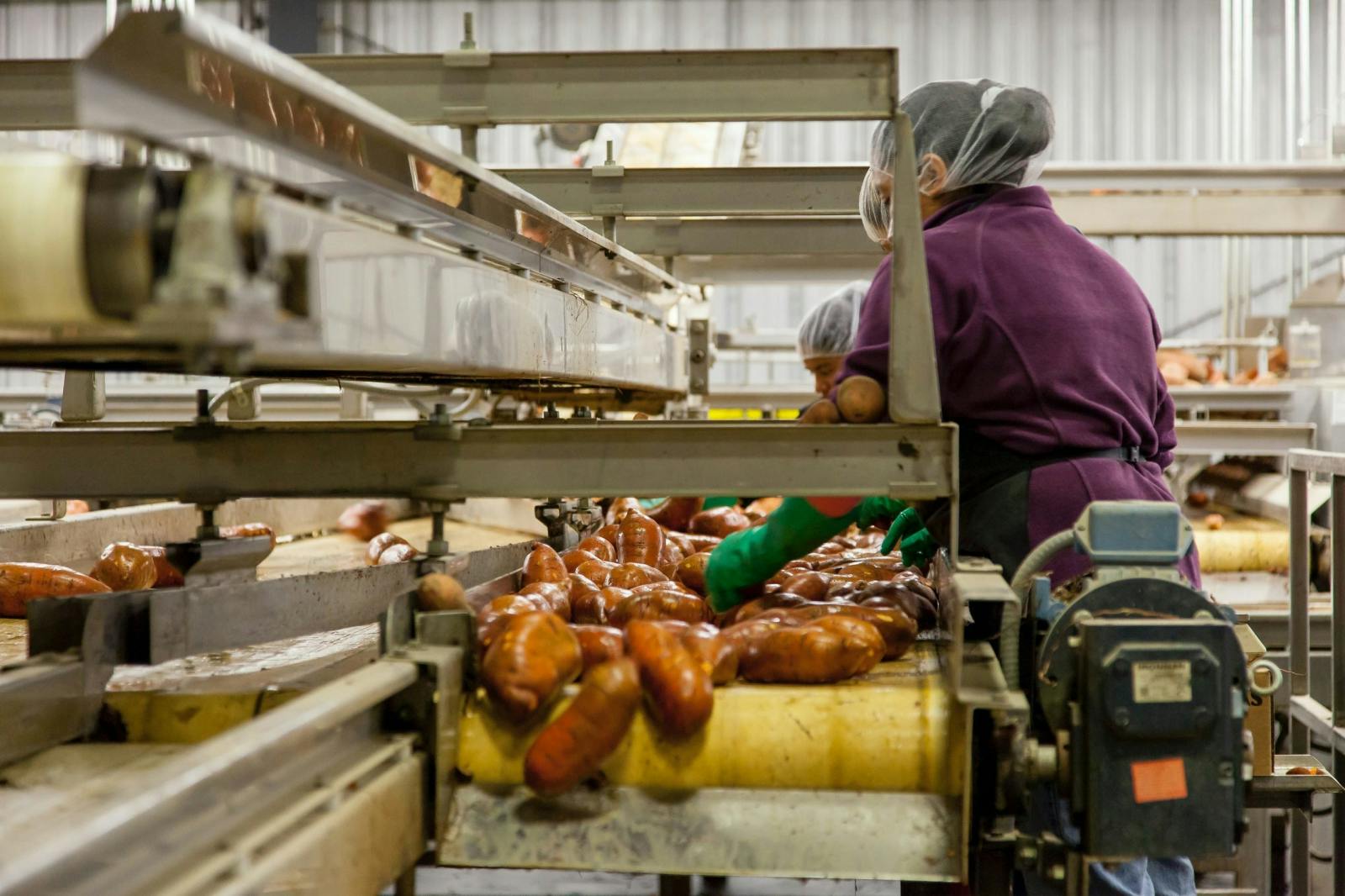
The growth of the Ghanaian economy as a whole is greatly influenced by the agriculture sector. A considerable change in the economy is anticipated as a result of increased productivity in the agricultural sector. Small and medium-sized businesses that operate in Ghana’s unorganized economy dominate the significant agriculture sector activity of food processing. Reduced post-harvest losses are the main benefit of agro-processing, but there are other factors as well.
Only 5% of the food products harvested in Ghana are processed, according to the Ministry of Food and Agriculture. As a result, from the standpoint of health and nutrition, agro-processing can improve the nutritional value as well as promote food security in the nation by lowering food deterioration and waste. Additionally, processed goods have more stable prices on the global market, which may improve export market opportunities and increase financial security, especially in rural areas where farming predominates. In addition to creating jobs, the growth of the agro-processing sector may also support business development, the diversification of rural economies, and import substitution, among other things. Food and beverages make up the biggest portion of processed commodities, making agro-processing the most significant subsector of the manufacturing industry.
Agro-processing in Ghana is still in its infancy, with 3 percent of medium-scale and 3% of micro-scale processing companies making up the majority of the sector. This sector is strongly dependent on the black market and mostly manufactures goods for the domestic Ghanaian market rather than for international export. There are two groups in the agricultural processing industry in Ghana. Domestic processing, or more specifically the agro-processing cottage industry, accounts for the majority of the sector’s activity. Because this business frequently relies on family labor, the quality of its product can be uneven. In far lesser numbers, factory processing takes place. The majority of its owners are foreigners or the government, and it exports goods and services that are beneficial to the economy.
Agro-processing has the potential to be crucial for Ghana’s economic development by creating demand for goods produced by upstream and downstream businesses. For rural residents, especially women, business is a crucial source of employment in Ghana. This labor force is made up almost entirely of tiny agro-processing businesses. In actuality, Africa has the largest employment share in agro-processing. A major portion of Ghana’s total export revenue comes from agro-processing.
Agro-Processing Industry and Its Challenges In Ghana

The manufacturing sector adds minimal value as a result of the inadequate relationship that still exists between agricultural raw materials and the processing industry. More than half of this sector’s value is added by the agro-processing industry, but Ghana’s manufacturing sector is primarily in trouble, experiencing slow development and a decline in its GDP share. The majority of goods offered at local markets are incredibly undervalued. For instance, only threshed roots and tubers are sold, but only threshed grain legumes are. Low levels of cottage industries and few large-scale enterprises in Ghana’s agro-processing may be the cause of the industry’s low value-addition. Cocoa is the only agricultural product that the Ghanaian agro-processing sector processes on a big scale. The majority of the nation’s processing activities have been characterized by traditional techniques, although they have gradually evolved toward more automated models, but not at a very high level. Comparatively to global companies that have access to highly effective and cutting-edge technology, businesses that continue to use local technology experience delayed opportunities for growth and scalability.
Agro-processing accounts for more than 70% of the informal economy, which the FAO defines as “legitimately produced goods and services that do not necessarily follow official processes,” such as rules, registrations, or licenses. This makes large-scale production within small and medium-sized businesses improbable in part, and the informal nature of the sector makes it difficult for technological techniques to be transferred, which perhaps explains the persistence of indigenous methods.
Many Ghanaians do not use agro-processing since there aren’t enough modern agro-processing facilities and equipment. The agro-processors themselves receive only a limited amount of information from agricultural specialists through their extension agents, have limited access to packaging supplies, and frequently lack the marketing expertise required to promote processing. Ghana’s youth also lack enthusiasm for jobs and typically select the mining industry due to the low profitability of the firm. Again, due in part to the small firm sizes and underdeveloped processes that cause many of these organizations to operate below capacity and employ inefficient technology, there are few connections between marketing and financial services.
A small number of market-dominant suppliers and merchants control the world’s food chains and, consequently, agro-processing. As opposed to Ghana’s informal cottage industry-style methods, this control is probably derived from developed nations with a formal economy. Ghana is not the only country that faces difficulties in agricultural value addition. According to research, this is a problem in Indonesia and Malaysia, as well as in other regions of the world besides Africa. The crude palm oil produced in these countries’ accounts for 85% of global production, but only a tiny fraction is refined domestically into the more valuable form.
Ghana and other African nations contribute substantially more to this sector’s overall value-added in manufacturing. Inputs from agriculture make up over 66 percent of the manufacturing value added in these nations, compared to only 37 percent from urbanized nations. Therefore, compared to industrialized countries, the former is more dependent on agro-processing. It is widely believed that the agro-processing sector has a lot of potentials to boost growth in African nations. The restricted growth of African markets and poverty are only made worse by crude agricultural businesses. Enhancing this industry could reduce post-harvest losses and bring African countries into line with other developing countries emphasis on “non-traditional exports” as their main food export as well as the global food market’s focus on processed food.
DIZ’s Support to the Agro-Processing Industry
.jpg)
Agro-processing can range from straightforward activities for product preservation, such as sun-drying items, to more sophisticated, expensive procedures. Upstream and downstream industries are frequently found in agro-processing sectors. These earliest agricultural commodity processing businesses include those that mill grains of rice and wheat, tan leather, spin cotton, and can fish, among others. The production of intermediate agricultural products, such as bread, biscuits, textiles, paper, apparel, and footwear, is processed more intricately in downstream sectors. Important backward and forward linkages define agro-processing companies.
When local suppliers can supply the raw materials and services that local producers need, backward linkages are created. This could be a reference to the provision of financing, inputs, or other production-enhancing services. The acquisition of machinery and capital goods from other sectors of the economy, as well as the purchase of agricultural supplies from farmers, can both create backward links. The creation of new opportunities in other areas of the economy, from agro manufacturing to the sale of processed goods, is what forward linkages entail. This covers the promotion of these goods as well as the creation of job opportunities through value-adding procedures. According to Babu (2000), forward links can be created by selling processed goods to end users or by selling processed goods to other businesses that use them as inputs in their production processes. These links have favorable effects on export revenues, employment creation, and food security.
Given its potential to stimulate demand for goods produced by other industries through backward or forward linkages, agro-processing may play a crucial role in Ghana’s growth. The agro-processing sector in Ghana has a lot of chances to grow. At the moment, this sector is worth around USD 800 million which is less than 5% of the GDP. To this end, to help the agro-processing sector to become a bigger industry, Special Economic Zone must be established. The creation of the Special Economic Zone is expected to promote industrial development and job creation in the country. The importance of this new economic zone lies in its ability to attract foreign investors. In Ghana, there is a chance to increase the productivity of agro-processing firms by lowering the costs of production, increasing the utilization rate, and improving the pricing of agro-products. An SEZ such as the Dawa Industrial Zone can solve this. This zone has a centralized location with easy access to roads, ports, airports, and logistics facilities, affordable land, and reduced cost of production.
Contact Investor Relations:
Email: enquiry@diz-ghana.com
Tel: 0552030000 / 0552040000
More
updates

Addressing The Infrastructure Gaps in Sub-Saharan Africa
Blog∙11th March, 2025

Regional vs. National Approaches to Trade Facilitation: Which is More Effective for Africa?
Blog∙11th December, 2024

Earn Big with Dawa Refer & Earn: Unlock Lucrative Rewards for Every Business You Refer!
Blog∙13th November, 2024

Leapfrogging the Growth Trap: Policy Initiatives for Developing Economies in a Globalized World
Blog∙4th October, 2024

Pioneering a New Era in Industrialization: Dawa Industrial Zone Champions Sustainable Development at Economic Zones Policy Roundtable
Blog∙25th September, 2024
